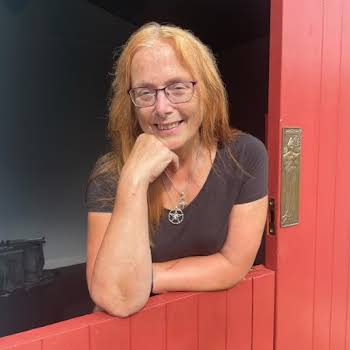Ann ‘Goody’ Glover: The Irish woman hanged for witchcraft in Boston
By Sarah Finnan
07th Nov 2022
07th Nov 2022
When Ann Glover, known as Goody Glover, left Ireland, she never could have known the series of events that awaited her. Nathan Mannion, Head of Exhibitions and Programmes at EPIC The Irish Emigration Museum, spoke to us about Ann’s life, and her strange and tragic death.
While Ann Glover’s date of birth and place of birth are not documented, what we do know is that Ann was sent to Barbados to work on a sugar plantation during the Cromwellian conquest of Ireland. It’s on this Caribbean Island that Ann first became displaced. It’s also where her husband was unfortunately executed for refusing to renounce his Catholic faith. Some say that before her husband died, he told those in his company that Ann was a witch… and so, this strange tale begins.
In 1860, Ann and her daughter Mary moved to Boston, where Ann became part of the Massachusetts colony. Ann worked as a washerwoman and became known locally as Goody Glover. Ann washed clothes for a local family, the Goodwins – the children of whom ended up accusing Ann of stealing their laundry. Ann denied any wrongdoing and shortly after the accusations became public, the Goodwin children started to act strangely – purring like cats and barking like dogs, amongst other odd behaviours. A local doctor was called in to examine the children. His diagnosis? Witchcraft.

The case of Ann and the Goodwin children caught the attention of a Puritan Minister named Cotton Mather. Cotton had many strange theories, one of which was that God had abandoned the Massachusetts colony and Satan’s presence was now active within it. Upon hearing about Ann, he believed that this theory was proven and became Ann’s chief accuser; a role which is noted in his book Memorable Providences, Relating to Witchcrafts and Possessions.
He described Ann as “a scandalous old Irishwoman, very poor, a Roman Catholic and obstinate in idolatry”. Ann was to stand trial, and when asked to recite the Lord’s Prayer, Ann could only do so in her native Irish tongue, or in broken latin. This seemed to further confirm what everyone assumed, that Ann was a witch. There was one last hope for Ann; that she would be found to be “insane” by a physician. Out of the six physicians that examined her, five of them found Ann to be of sound mind, meaning her last hope for survival was gone.

On 16th November 1688, Ann Glover was hanged in Boston. Ann is recorded as the last person hanged in Boston for the purported crime of witchcraft. This was not an ending as such, but rather, the start of a tragedy, as Cotton Mather’s book would become influential in the events that later took place in Salem in 1692.
As a way to recognise the wrongdoings and injustice that Ann suffered, and to remember her, the 16th November was declared ‘Goody Glover Day’ by Boston City Council in 1988.
You can find out more about Ann ‘Goody’ Glover at EPIC The Irish Emigration Museum.




















